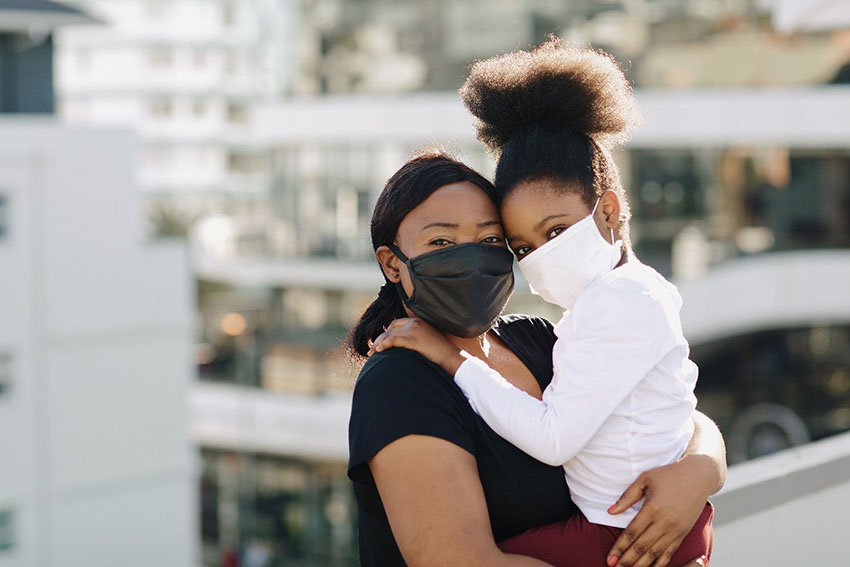
Photo Credit: Hello Africa/Getty Images
Since the early stages of the COVID-19 pandemic, many countries have reported alarming rates of violence, exploitation and other abuse, especially intimate partner violence among women and other marginalized groups. UN Women has warned that, as countries continue lockdowns and sheltering-at-home measures, a shadow pandemic of violence is growing. More than ever, the United Nation’s 16 Days of Activism against Gender-Based Violence is an important opportunity for international development organizations to commit to identifying ways to prevent and respond to violence, exploitation and other abuse in the communities where humanitarian and development projects are being implemented.
What is causing increased rates of violence?
Experience with natural disasters, conflict and health emergencies has taught us that systemic inequalities related to age, gender, race, ethnicity and disability place women, girls and other vulnerable populations, such as LGBTQI+ people, at increased risk of abuse. Strained infrastructures, limited resources, rapidly changing social norms and breakdowns in systems that normally offer protection contribute to increased abuse.
Since the onset of the COVID-19 pandemic, women’s rights activists in Argentina, China, France and elsewhere have reported that domestic violence cases have risen dramatically. The United Nations has reported that calls to domestic violence support services have doubled or even tripled in some communities. Access to health care and other support services by victims and survivors has been further diminished. Victims and survivors of abuse will be uniquely and profoundly impacted by the COVID-19 pandemic.
FHI 360 takes action to protect program participants
At the onset of the pandemic, FHI 360 began raising awareness among project teams about the heightened risks to vulnerable populations. Drawing from tools developed by the international development community, FHI 360 outlined eight recommended actions. These actions, and corresponding strategies and resources, are detailed in a guidance document, Enhancing Protection of Program Participants During the COVID-19 Pandemic. FHI 360 is sharing this document in the hope that it will be useful for other organizations as they work to increase protections for program participants during this pandemic and beyond.
Eight recommended actions
Action 1: Gather information to understand how violence directly impacts program participants and the availability of services for victims and survivors of violence and exploitation in your communities.
Action 2: Develop strategies and plans to address an increase in domestic violence, sexual exploitation and other abuse among program participants. Consider interventions for the short term (six months to one year) and medium term (program duration).
Action 3: Equip your program team to respond appropriately to support those seeking assistance.
Action 4: Create new ways to engage program participants in the planning and implementation of programs, including activities related to the COVID-19 pandemic.
Action 5: Update referral pathways to reflect changes in available medical care, psychosocial support, legal and emergency housing for victims and survivors of violence, exploitation and abuse.
Action 6: Include violence prevention and response activities in annual work plans as current funding permits. Include these activities in any new funding requests.
Action 7: Explore innovative ways to help people stay connected and decrease isolation.
Action 8: Disaggregate data related to COVID-19 outbreaks by sex, age and disability.
FHI 360 remains committed to prioritizing the protection of people who receive support and assistance through our programs. Learn more about the 16 Days of Activism against Gender-Based Violence campaign and how you can get involved.
